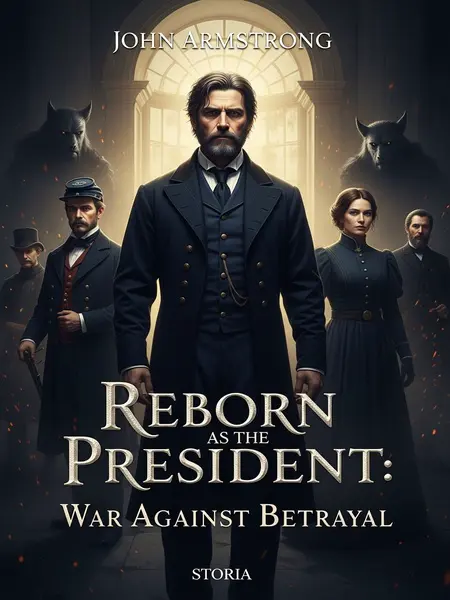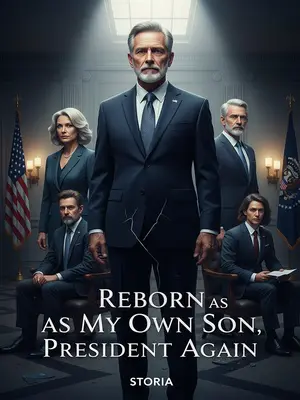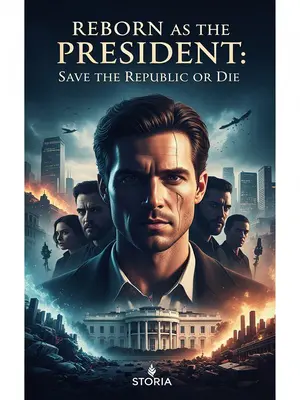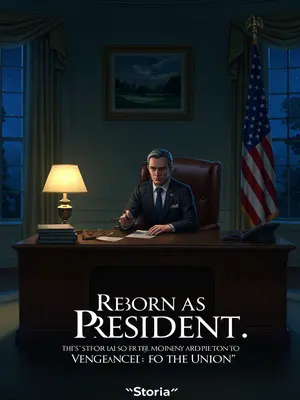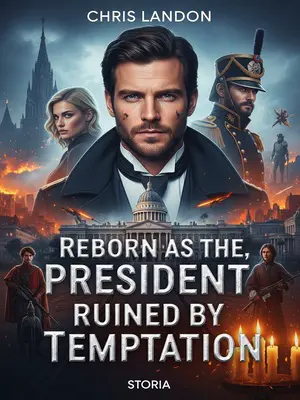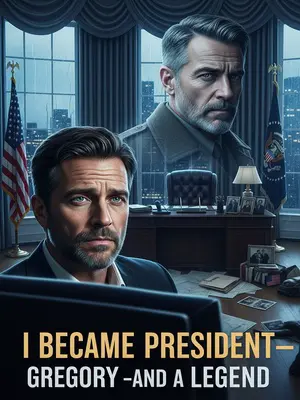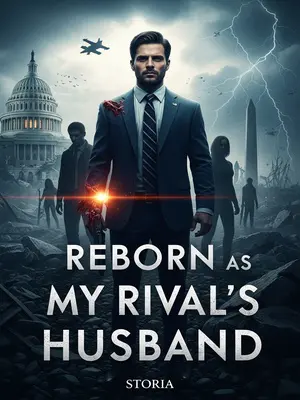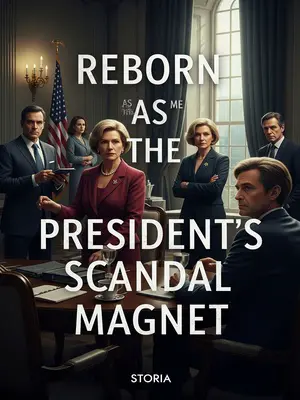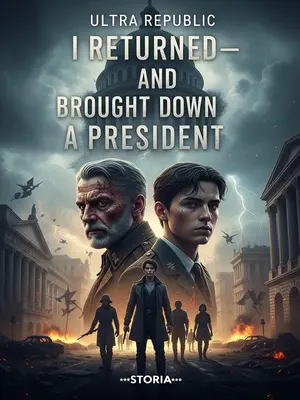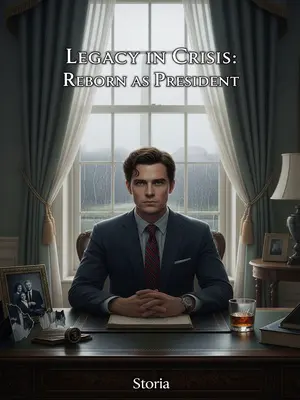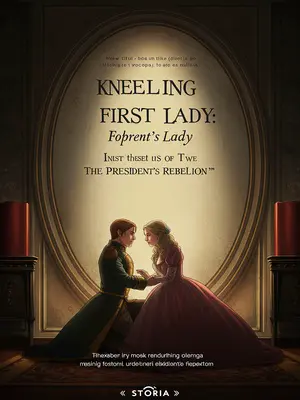Chapter 3: Blood and Thunder in the White House
During those fifteen days, besides writing to Quinn, Armstrong also kept Tuttle in line.
Armstrong summoned Tuttle and really laid into him—scolding him for being unprepared, lacking strategy, scolding him for using the wrong people and harming the country with war.
He paced the Oval Office, voice rising and falling like a preacher’s in a revival tent, his words sharp enough to draw blood. Tuttle stood pale and sweating, the bust of Lincoln gazing down in silent judgment.
He scolded him so much Tuttle doubted his own existence, then threw out the Confederates’ peace terms—they demanded Tuttle’s resignation as a precondition.
Tuttle: “…”
Tuttle: “Am I General Grant now?”
His voice was small, almost childlike, as if hoping someone would step in and say it was all a bad joke.
Armstrong glared at him, saying if Grant fought like you, the Confederates would never have killed him.
Tuttle: “…”
Tuttle, desperate, knelt to Armstrong in the Oval Office, saying he had tens of thousands in personal wealth, all of which could be used to reward the army; perhaps they could still fight the Confederates at the Mississippi.
Tuttle’s hands trembled as he reached for his wallet. His throat closed up, every word tasting like shame. The old bills were worn thin. His pride crumbled on the plush carpet—he’d never begged for his job before.
Armstrong instead smiled, came down and patted Tuttle on the shoulder: “It’s useless. Do you know how many officials want to see you gone? Do you know the chiefs of security around me have all been bought off?”
Tuttle’s vision darkened, feeling finished.
The air in the room thickened. The storm outside seemed to creep inside, pressing the walls closer.
“Everyone wants you out, only I pity your ambition.” Armstrong stood before Tuttle and patted his shoulder. “For the Union to have someone with your ambition in this half of the country is rare.”
Tuttle’s nose tingled, almost in tears.
He sucked in a ragged breath, fighting to keep his composure. The president’s words felt like a lifeline thrown into a flood.
After a while, Armstrong poured a glass of bourbon and handed it to Tuttle: “Your head is safe for now, but if you make another mistake, I’ll drink with you from the golden cup, but the blade will not spare you.”
Tuttle was both grateful and fearful.
The bourbon burned, its warmth settling into his bones, a reminder that safety was always conditional in Washington.
After leaving the White House, Tuttle was still in a daze, always feeling that the president’s methods of controlling his cabinet, his every move, truly meant he could fire you at any moment.
The power of life and death seemed naturally his.
This was utterly different from before.
Tuttle shivered and thought no more.
He hurried down the steps into the rain, the city lights blurred by tears he would never admit to. He knew he had survived—for now.
During those days, Tuttle signed transfer orders, cooperating with Armstrong’s plan, and the Iron Horse Brigade quietly entered the capital in waves.
Through the White House Security Office, they infiltrated inside and outside the mansion.
The Security Office was nominally to guard the White House, supervise officials, directly under the president, with great authority.
But in reality, it only had investigative power, no authority to arrest or judge. As for the accuracy of their intelligence, generations of presidents had soft ears and trusted politicians more.
Over time, the office was filled with useless people, and no one cared about it anymore.
Coffee pots cooled on desks, paper stacks gathered dust. The real work of war had long since moved elsewhere, into whispered conversations in alleys and back rooms.
Fifteen days later, the White House, the grand cabinet meeting convened as scheduled.
The weather outside was poor, layers of clouds piling up, about to pour rain at any moment.
Armstrong sat in the Oval Office, his face neither sad nor happy, raising his hand: “War or peace, how to fight or negotiate, let’s discuss.”
His voice was calm, but his eyes were cold and clear—a warning to anyone thinking of games or betrayals.
Shea signaled the Treasury Department, and someone immediately stepped out, listing the costs of war, saying that even if the front won, the treasury would be emptied, rebellion was imminent, and caution was needed.
“We can’t win. The generals are all crude and greedy—how could they win?”
“Tuttle has ruined the country and the people, he should be fired!”
“Without Grant’s era, Arnold’s policies are the mature ones.”
Tuttle’s face was flushed. He still had some influence; whether the Justice Department or the Cabinet, there were always a few officials to speak for him.
The air was thick with self-justification, ambition, and fear. Rain tapped against the windows, a steady, insistent beat.
Armstrong just sat quietly at the desk, his cold gaze sweeping the cabinet, memorizing every reaction and face.
Thunder rumbled outside; heavy rain was about to fall.
Armstrong raised his hand, stopping the debate. He directly asked Shea: “Secretary Shea, you have a legal background. Why are you silent today?”
Shea stepped forward and bowed: “Mr. President need not worry. Though the Union is not yet a match for the Confederates, we have won a few battles, showing the rebels are not what they were. You have probed their strength; now is the time to endure humiliation for the nation, as a wise president should.”
Armstrong also smiled, surveying the cabinet: “Do you all agree?”
Except for Tuttle’s small group, the room responded in unison.
All praised the wise president.
The words rang hollow, each man watching the others, no one daring to break from the script.
Armstrong still smiled, flipping through the papers on the desk: “Do you all know the Confederates’ terms are to call the Union a junior partner, increase tribute, cede territory, and fire Secretary Tuttle?”
Shea immediately stepped forward, speaking forcefully: “For the Union, why would the secretary mind losing his job?”
Those already swayed by Shea stepped out, their voices shockingly unified, echoing in Tuttle’s ears like thunder.
“Why would the secretary mind losing his job!”
Tuttle was dazed, nearly fainting.
When he came to, he heard rain outside—the thunder was real.
Tuttle was utterly hopeless. Cabinet struggles were like military defeat; even with the president’s support, what use was it?
“I understand.”
In the pouring rain, Tuttle heard the president’s voice.
He couldn’t help but look up at him.
Armstrong’s face was half-smiling, staring at Shea: “I understand. You all want to negotiate peace with the Confederates, with plenty of high-sounding reasons. Either enduring hardship or for the people, but I just don’t understand—what justification do you have?”
As he finished, Armstrong’s smile vanished, his voice hitting the ground like it could shatter the Oval Office.
The words hung heavy, a chill settling into the room that had nothing to do with the weather. For a moment, the only sound was the soft ticking of a clock and the hush of rain.
Shea’s breath caught, his heart pounding. He thought: No, no, I know the president too well—how could he roar like a lion?
But he had no time to react.
Armstrong suddenly stood up, slamming his fist on the desk. “You call yourselves patriots? If you had a shred of honor, you’d resign before I have to throw you out!”
“Peace, peace—I’m the president, yet to see a mere Confederate envoy I have to go down myself, bow to receive his letter, and the amount of tribute depends on his damn face. Am I still the president?”
“When the president is humiliated, the cabinet should resign! If you don’t summon your remaining courage to fight the enemy, you should all resign here—what more is there to say!”
His voice echoed off marble and paneling, the fury of a nation behind every word. Some men flinched; others stared at their shoes, shame and fear written plain.
The cabinet all turned pale, frightened by Armstrong’s intensity. Only Shea’s pupils contracted, catching Armstrong’s meaning.
The president doesn’t want peace.
But if he doesn’t, will he wait for the Confederates to take Washington?
If not, how can Shea keep power?
Shea gritted his teeth. Before Armstrong finished, he strode forward three steps, shouting louder: “Jenkins! The president is ill—shouldn’t you urge him to rest?”
Jenkins shuddered, looked at Shea, then at Armstrong.
There were still loyal cabinet members in the room. Even among the peace faction, Senior Advisor Benjamin Dean stepped out, pointing at Shea and cursing: “Traitor! Do you intend a coup?”
At this point, there was no turning back. Shea gritted his teeth: “The Union is ruled by law. Today, all are here. With Chief Jenkins, what is there to fear?”
Jenkins looked around; except for Dean and a few, all cabinet members lowered their heads, clearly agreeing with Shea.
The rain outside sounded like stones falling on rooftops, making Jenkins dizzy.
He remembered Shea and Evelyn’s promises of a glorious future. His eyes turned ruthless.
Armstrong looked at him coldly: “Chief Jenkins, have you decided?”
Jenkins suddenly drew his pistol: “Please, Mr. President, return to rest.”
As the gun was drawn, Jenkins’s men surged forward. Surrounded by dozens, Armstrong did not retreat but advanced, forcing his way to a guard and shouted:
“I am the President. Do you dare bear the crime of treason?”
His words roared like a lion, stunning the cabinet.
Shea was dumbfounded: Is there a president who isn’t afraid of death?
While all were shocked, Armstrong snatched a pistol, his finger hovering over the trigger, his gaze sweeping the room. He counted every heartbeat, every twitch of a hand, ready to gamble the country on a single shot. The shot rang out, and blood splattered three feet, a man dropping to the floor.
The pistol’s crack split the air. Jenkins jerked backward, the red blooming on his chest as the storm outside seemed to pause.
Except for the rain, the room was silent.
Including Tuttle, the cabinet looked at Armstrong as if seeing a god descend, awe-inspiring.
The smell of gunpowder lingered, smoke curling toward the ceiling. Armstrong’s hands were steady, his eyes fierce—a wolf among sheep.
Armstrong, covered in blood, full of spirit, his gaze sweeping all, alone suppressed dozens of guards who dared not advance.
“Men.”
With Armstrong’s calm order, Shea panicked.
Shea’s face was ashen, lips trembling. He knew he had bet wrong. He never expected the timid president to suddenly display the might of Washington and Lincoln.
Shea shouted hoarsely: “The guns are drawn—retreat and you die!”
Jenkins’s face twitched, realizing the situation.
Footsteps, gun-cocking, shouting—all chaotic. Tuttle, Dean, and others rushed to stop the rebels; more hid aside, trembling.
The thunder outside rattled the glass, the storm at its peak. For a heartbeat, the fate of the Union balanced on a trigger pull.
In the chaos, Armstrong stood with pistol in hand, unmoving.
Three or five rebels approached, guns raised to fire, but Armstrong did not move.
A flash of lightning outside.
Gunfire erupted in the room.
Dozens of harmless-looking staffers moved like lightning, tearing open their jackets to reveal white shirts. In the chaos, they had already crept behind the rebels.
As the lightning flashed, a gun fired at point-blank range.
Even Jenkins had a staffer behind him, a pistol pressed to his back.
Shea’s vision darkened, with only one thought.
It’s over.
His entire circle was doomed.
The thunder following the lightning finally rolled in.
The thunder turned Tuttle’s face red; he was invigorated, full of spirit, and knelt, shouting: “The President is divinely wise and courageous, the mandate of the people, with talents beyond compare!”
The cabinet members who had just made way for the rebels also came to their senses, kneeling one after another.
Chanting divine wisdom and courage.
Armstrong, pistol lowered, eyes downcast, none dared meet his gaze.
Jenkins was drenched in cold sweat. As a soldier, he knew he would die and shouted: “Let the President know, I have troops outside the White House. The outcome is not yet decided.”
Armstrong smiled: “Is that so?”
Jenkins looked at Armstrong’s smile, his hair standing on end.
Senior Advisor Dean’s eyes lit up. He said: “Mr. President, I have a protégé, only twenty, but sharp as a tack. He recently found many oddities in the city, reported to the authorities, and the rebels are not to be feared.”
Armstrong frowned, sensing complexity.
Jenkins calmed down, smiling at Dean: “Your protégé, is he called Samuel Carter? He came to me, warned me of spies in the Security Office, and I believed him.”
Jenkins turned to Armstrong: “If you brought elite troops into the capital, mixed in with the Security Office, they can’t be relied on now.”
Dean was shocked, face pale, looking at Armstrong, not knowing what to say.
Armstrong raised his eyebrows, finding it interesting, and laughed: “So it’s Carter.”
Jenkins steadied himself, Shea calmed as well.
Yes, the outcome wasn’t decided yet.
Shea also laughed: “Thanks to Carter. Even if you issued secret orders, with the guards watching the Security Office, who would dare break out and spill blood in the streets?”
Jenkins, hearing this, was not worried at all. He raised his eyebrows: “The troops you brought must be few. Even your trusted generals, are they bold enough to win against many with few?”
“Mr. President, why not return to rest?”
Armstrong, pistol in hand, looked at Jenkins. Jenkins tried to smile, but suddenly a shot rang out.
Armstrong raised his hand, the shot like lightning, striking Jenkins in the chest.
Jenkins screamed and fell, cabinet members shocked, rain pouring outside. Armstrong looked at Shea, eyes like lightning, voice like thunder: “You guessed right. My trusted general is indeed bold and loyal. As for whether he can win against many with few, if he could break through fifty thousand Confederate troops, can he not break through a few thousand guards?”
Torrential rain, thunder and lightning, Shea’s throbbing temples saw the elite disguised as staffers.
These elites were all dressed in white.
A line of verse pierced Shea’s mind.
The Potomac mourns, the autumn wind is cold, all in white like snow.
(Note: This line references the famous lament for fallen soldiers, evoking the image of warriors in white, signifying both mourning and resolve.)
Shea cried out: “Quinn! It’s Quinn’s Iron Horse Brigade!”
“It is I.”
Countless raindrops fell on blood-stained uniforms, boots thudded on marble, water pooling around their heels, as the Iron Horse Brigade—white uniforms stark against the carnage—filled the doorway. An old general from the North, hair white at the temples, strode in.
Thunder boomed overhead as Quinn locked eyes with Armstrong. “The country’s yours to save, Mr. President. Just give the order.” Outside, the storm finally broke.
